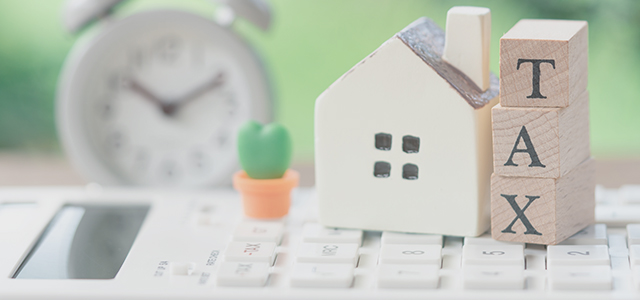In this article:

You’re hoping to sell your property for a tidy profit. But you’re not keen on the prospect of capital gains tax eating into this hard-earned gain? Here’s what you can do to lessen the size of this bite or avoid it altogether.
How is capital gains tax calculated?
Capital gains tax (CGT) kicks in when you sell an asset – like your investment property – and you make a profit.
The capital gain tax calculation includes the costs incurred in buying, maintaining and selling the property (see point 5 below). When these expenses are added to the property’s original purchase price, this sum is called the ‘cost base’. Subtract this cost base from the property sale price to determine the ‘capital gain’. A simplistic example of a capital gains calculation is:
$700,000 (sale price) – $400,000 (cost base) = capital gain
To account for potential variations in property ownership, capital gains tax is calculated using several methods, including discount and indexation. Choose whichever option suits your circumstance and helps minimise your capital gains tax.
Once the calculation is complete, this amount is added on to your assessable income and the tax is paid according to your new tax bracket.
Tip!
Capital gains tax is assessed from the date of the contract, not the date of settlement.
How to avoid or minimise capital gains on an investment property sale
Capital gains tax was introduced on 20 September 1985, so if your property was acquired before this time, then no CGT is payable. However, if you make major capital improvements to your property after this date, part of any capital gain you make could be taxable.
1. Live in your property
One of the significant exemptions from capital gain tax is if your property is your principal place of residence (PPOR). To claim this exemption, you must have predominately lived in your home, rather than rented it out, since the time you’ve owned it.
Tip!
You’re not entitled to the PPOR exemption for a vacant block. But if you build or renovate on land you own, you can treat the land as your primary residence for up to four years before you move in (see ATO for conditions).
2. Hold off on selling
If you’re able to hold your property for more than a year before you sell it, you may be eligible for a 50% discount on your capital gain. There is no discount if you are a company, you will pay the company tax rate. If the property is owned by a SMSF there is a 33% discount which reduces the tax rate to 10%. And the good news is if the SMSF is in pension phase there is no tax.#
3. Claim an exemption
If you live in your property for at least six months once you purchase it, you may be exempt from the capital gains tax.
You may also be able to claim an exemption from CGT if you move out of your home but continue to treat it as your principal residence for a period of up to six years. During this time you can rent out the property, but you need to sell within six years of first being rented out to be exempt from paying CGT. See ATO for details about what makes a property your ‘main residence’.
Tip!
If you work from home, be careful of claiming your home as your business premises for taxation purposes. You might find this triggers some form of CGT, which may outweigh any home office tax benefits.
4. Make your capital losses work for you
If you make a loss when you sell your property, you don’t have to pay CGT. If you make a loss but no capital gain, you might be able to carry this forward and deduct it against future capital gains.
5. Keep records of claimable expenses
The more thorough your record-keeping, the better chance you have of building a solid cost base, which works to reduce your capital gains. Keep track of costs like:
- Stamp duty
- Advertising for tenants or selling your property
- Legal and agent fees
- Borrowing fees and expenses
- Valuations
- Home improvements.
Tip!
Seek independent advice on all tax matters, including which expenses you can claim.
# Correction: The discount rates and the content have been corrected.

 Contact Us
Contact Us Find a Broker
Find a Broker